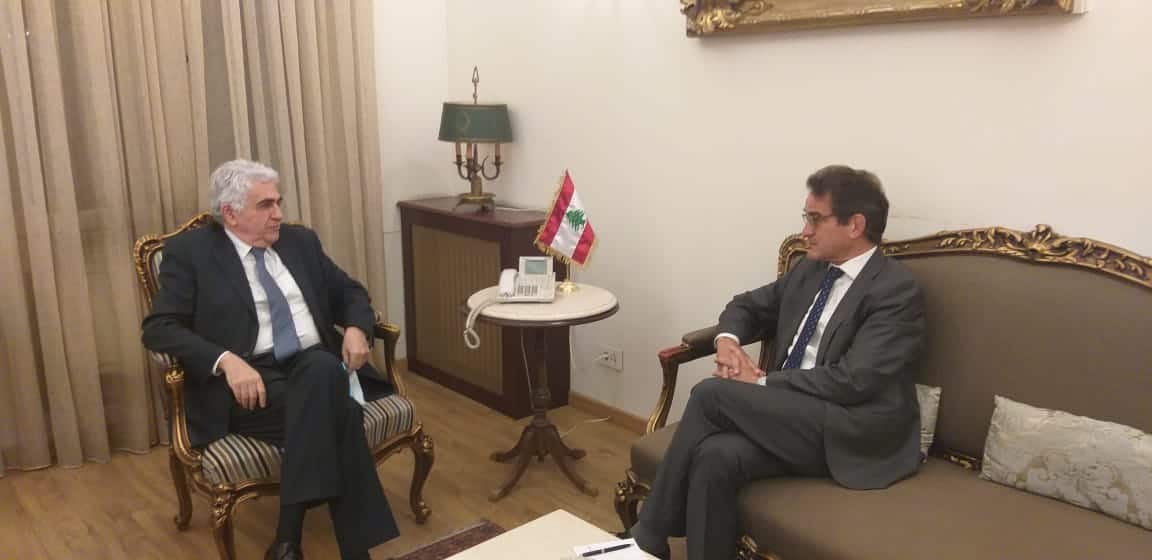Germany’s move to outlaw all Hezbollah operations last Thursday pleased the US and Israel but was not a popular decision in Lebanon, Foreign Minister Nassiff Hitti confirmed by calling the German ambassador into the ministry for a meeting on Tuesday.
Hitti reminded Berlin’s representative in Beirut that “Hezbollah is a main political component in Lebanon which represents a wide section of the people and part of parliament.”
The German Ambassador agreed and explained that the decision to ban Hezbollah in Germany “was taken some time ago and has entered into force recently,” the foreign minister tweeted after the meeting on May 5.
Birgelen also clarified that “the decision does not classify Hezbollah as a terrorist but rather prohibits its activities on German soil.”
In the diplomatic world, ambassadors are generally only summoned over incidents or policy changes that cause offense to, or in some way displease the host country’s government. Given Lebanon’s dire economic crisis, they are in no real position to endanger ties with Germany who, according to Ambassador Birgelen, is the country’s second biggest donor.
In spite of the spat over the Hezbollah ban, the German ambassador had a “very fruitful exchange” with Lebanese Prime Minister Hassan Diab today. The pair met to discuss plans to overcome Lebanon’s economic and financial challenges.
“Great first step to lay out economic and financial program and reach out to IMF. With heavy lifting ahead, most important to bring everybody on bord [sic] now,” Birgelen tweeted on May 6.
Hezbollah Chief Sayyed Hassan Nasrallah has been less forgiving and decried the ban on Tuesday. In a televised address, the movement’s chief called it a “political decision that reflects Germany’s submission to America’s will and to pleasing Israel.”
Concerned that other EU countries may follow Germany’s lead, Nasrallah stressed that “when we say we are not active in Germany, we are being 100 percent honest.”
The two faces of Hezbollah
Hezbollah emerged after the Lebanese civil war and has two branches. One is legitimately engaged in Lebanese politics and includes a number of serving parliamentarians. The other is a heavily armed paramilitary outfit considered by many, including the US and Israel, to be a Shia terrorist organisation with backing from Iran that engaged in a deadly war with Israel in 2006.
Hezbollah’s reclassification in Germany hit the headlines on April 30 after a series of raids on Shia mosques in the capital Berlin and regional centers Bremen and Dortmund. Hezbollah’s armed “extremist wing” has been banned in Germany for some time but the political arm of the organization was free to operate until last Thursday.
German authorities now argue that the party’s political wing is responsible for financing the military wing, hence the move to curtail its activities. German Interior Ministry Spokesman Steve Alter called Hezbollah a “Shiite terrorist organization,” while Interior Minister Horst Seehofer declared, “the activities of Hezbollah violate criminal law and the organization opposes the concept of international understanding.”
Germany’s change of heart on Hezbollah means it now falls in line with the US, Israel, Canada, Japan, the Netherlands, and GCC countries, who all ban the group, and who regard its political wing, at least, as a key player in Lebanese domestic politics.

